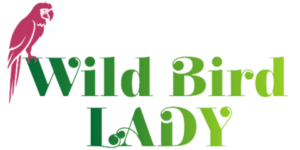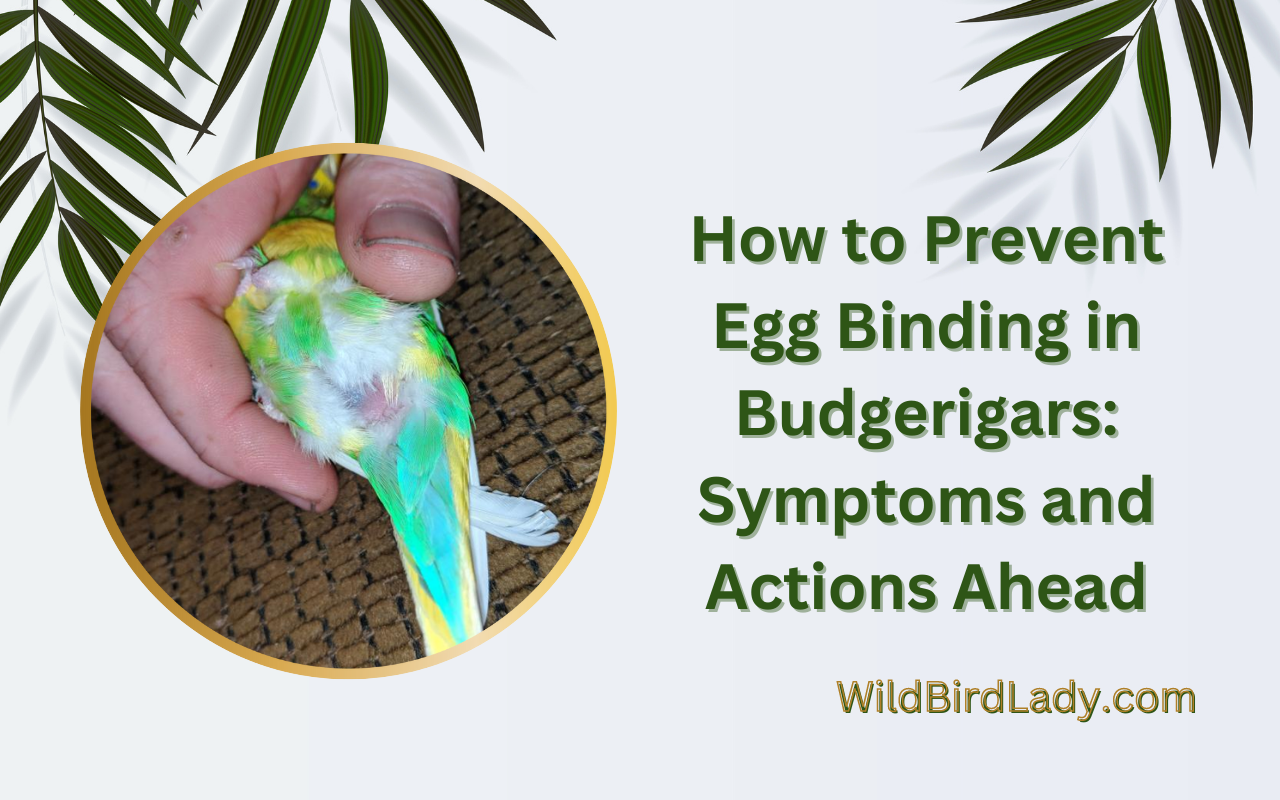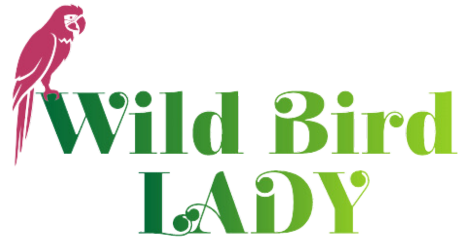Egg binding in budgerigars is a severe condition that can lead to a life-threatening situation for female birds. It is caused by the inability of a female budgerigar to lay eggs.
Such a condition requires immediate action to prevent complications and save the bird’s life. In this article, we will delve into the causes, symptoms, and prevention strategies for egg binding in budgerigars. Budgerigars, commonly referred to as budgies or parakeets, are small australian birds that are popular as pets.
The striking coloration of budgerigars makes them a favorite bird species for pet lovers. However, egg binding can affect a female budgerigar, causing severe complications that can lead to death if left untreated. Read on to learn about egg binding in budgerigars, its causes, symptoms, and how to prevent it from happening.

Credit: www.thehappychickencoop.com
Causes Of Egg Binding In Budgerigars
Genetic Predisposition
Egg binding in budgerigars can sometimes be attributed to genetic predisposition, which means that it is an inherited condition that runs in the family. Some budgerigars are simply more prone to developing complications related to egg laying and birthing.
Malnutrition
Malnutrition is another major cause of egg binding in budgerigars. Like most animals, budgerigars require a balance of nutrients to maintain healthy body functions. Without a proper diet, they may not have the necessary energy or nutrients to regulate egg laying.
Lack Of Calcium
Calcium is a crucial nutrient that helps facilitate proper muscle and nerve function in budgerigars. Without proper calcium levels, their muscles, including those required for egg laying, may not function correctly, leading to egg binding.
Inadequate Nesting Conditions
Budgerigars require suitable nesting conditions to encourage healthy egg-laying processes. If the nesting box is too small, too cramped, poorly ventilated or lacks proper bedding, they may experience difficulty laying their eggs.
Stress
Stress is a common cause of egg binding in budgerigars and can be caused by several factors such as bullying, constant disturbance, lack of privacy or a sudden environment change. High-stress levels can lead to hormonal imbalances, which can negatively impact egg-laying processes.
Egg binding in budgerigars can have severe and sometimes, life-threatening consequences. Understanding the causes and implementing measures to prevent them is crucial for maintaining the health of your bird.
Symptoms Of Egg Binding In Budgerigars
Egg binding is a serious condition in budgerigars that can lead to severe health consequences if not treated promptly. Birds suffering from egg binding are unable to pass their eggs naturally, leading to various symptoms that can indicate the severity of the situation.
In this post, we explore the symptoms of egg binding in budgerigars and highlight the important factors pet owners need to know to save their feathered friend’s life.
Decreased Appetite And Activity Level
Budgerigars suffering from egg binding may show reduced appetite and activity levels, becoming lethargic and disinterested in their surroundings. If you notice a significant drop in your bird’s energy levels, it could be a signal that there is an underlying health issue.
Contact your avian veterinarian immediately if you see signs of inactivity in your budgerigar.
Straining Or Sitting In A Hunched Position
Budgerigars may sit in a hunched position for long periods while attempting to pass their eggs. This behavior is often accompanied by an obvious lack of energy and can indicate that the bird is experiencing discomfort or pain. If you see your budgerigar straining, hunching or showing signs of discomfort, it’s time to see an avian vet.
Tail Bobbing
Rapid tail bobbing is a notable symptom of egg binding in budgerigars. This behavior indicates that the bird is experiencing extreme difficulty breathing, potentially due to the pressure the egg is causing. You will need to act fast to save your feathered friend if you notice rapid tail bobbing.
Discolored Droppings
Budgerigars in good health have regular, well-formed droppings, which are usually green in color. However, a bird with egg binding may show discolored or unusual droppings. This can include diarrhea, an absence of feces, or droppings covered in mucus or blood.
Difficulty Breathing
Labored breathing or panting are common signs of egg binding in budgerigars. The egg pressing against the respiratory system causes the bird to experience respiratory distress, making it uncomfortable to take a breath. If you notice such symptoms, it’s imperative to act fast and get your budgerigar to an avian vet.
Signs Of Pain Or Discomfort
Budgerigars with egg binding may exhibit signs of pain or discomfort, such as grinding their beaks or crying out when touched. Such signs should draw your attention, and you should be quick to take action and seek medical attention for your pet.
Early detection is crucial in saving a bird’s life from egg binding. Be observant and pay attention to changes in your pet’s behavior and health status regularly. If you suspect that your bird is unwell or exhibiting symptoms of egg binding, visit an avian vet without delay.
Prevention Strategies For Egg Binding In Budgerigars
Egg binding is a serious condition that can affect female budgerigars. The egg can become stuck in the reproductive tract, leading to severe health complications and, in some cases, death. Fortunately, there are several strategies that bird owners can use to prevent egg binding in budgerigars.
These include proper nutrition, providing sufficient calcium and vitamin d, maintaining adequate nesting conditions, reducing sources of stress, and regular veterinary check-ups.
Proper Nutrition
Proper nutrition is critical to preventing egg binding in budgerigars. A well-balanced diet will ensure that the bird has all of the nutrients it needs to stay healthy.
- Provide a high-quality seed mix that includes a variety of seeds, such as millet, canary grass seed, and black seed.
- Offer fresh fruits and vegetables daily. Good choices include leafy greens, carrots, sweet potato, and apples.
- Consider supplementing your bird’s diet with a high-quality pellet food. Pellets can provide added nutrition and can help prevent nutrient deficiencies.
Providing Sufficient Calcium And Vitamin D
Calcium and vitamin d are essential nutrients for budgerigars, especially for females that are laying eggs. These nutrients help promote strong bones and muscles, as well as proper eggshell formation.
- Offer a cuttlebone or mineral block for your bird to chew on. These are excellent sources of calcium.
- Provide your bird with access to natural sunlight or a full-spectrum uvb light to ensure adequate vitamin d production.
- Consider adding a calcium/vitamin d supplement to your bird’s diet if recommended by your vet.
Maintaining Adequate Nesting Conditions
Providing a safe and comfortable nesting environment is essential to preventing egg binding in budgerigars.
- Use a nesting box that is appropriately sized for your bird. The box should be large enough for the bird to move around in but not so large that the bird can’t keep the eggs warm.
- Cover the bottom of the nesting box with a layer of soft nesting material, such as shredded paper or coconut fiber.
- Ensure that the nesting area is well-ventilated and that the temperature is between 65-75°f.
Reducing Sources Of Stress
Stress can contribute to egg binding in budgerigars.
- Provide your bird with ample opportunities for exercise and play. A boredom buster toy will prevent your bird from getting bored.
- Ensure that the bird’s cage is appropriately sized and located in a quiet area of your home, away from loud noises and other stressors.
- Be mindful of changes to your bird’s routine, such as when you are cleaning the cage or introducing new toys. Try to minimize disruptions as much as possible.
Regular Veterinary Check-Ups
Finally, regular veterinary check-ups are critical to ensuring your bird stays healthy and preventing egg binding. Your vet can perform a physical exam and provide guidance on managing your bird’s diet, nesting area, and stress levels.
Egg binding in budgerigars can be a potentially fatal condition. However, by following the prevention strategies outlined above, you can greatly reduce your bird’s risk of developing this condition. By ensuring proper nutrition, providing sufficient calcium and vitamin d, maintaining adequate nesting conditions, reducing sources of stress, and scheduling regular veterinary check-ups, you will help ensure your budgerigar stays healthy and happy for years to come.
Treatment Options For Budgerigars With Egg Binding
Egg binding in budgerigars is a common health issue among female birds. If left untreated, it can be life-threatening for your feathered friend. In this section, we’ll discuss the different treatment options for budgerigars with egg binding, including manual egg removal, hormonal therapy, surgery, and home care and monitoring.
Manual Egg Removal:
Manual egg removal is a straightforward procedure that can be performed by a veterinarian or a skilled bird owner. It involves manually removing the egg from the bird’s oviduct.
- This procedure should only be performed by a professional or experienced bird owner, as it can be dangerous for the bird.
- It’s best to perform the procedure as soon as possible to relieve the bird’s discomfort and prevent any further health complications.
- The bird will likely require antibiotics and supportive care to aid the healing process.
Hormonal Therapy:
In some cases, hormonal therapy can be used to treat egg binding in budgerigars. This involves administering hormones like leuprolide, which can stimulate the bird’s pituitary gland to suppress egg production.
- Hormonal therapy should only be prescribed by a veterinarian with experience in avian medicine.
- This treatment option is not suitable for all birds and may come with side effects, such as the risk of developing ovarian cysts.
- The bird will require close monitoring throughout the hormonal therapy process.
Surgery:
Surgery is another treatment option for egg binding in budgerigars. This involves a minor surgical procedure to remove the bird’s egg.
- This option is typically reserved for birds with severe or life-threatening egg binding.
- Surgery comes with risks and should only be performed by a skilled and experienced avian veterinarian.
- The bird will require antibiotics and supportive care to aid the healing process.
Home Care And Monitoring:
Finally, home care and monitoring are crucial aspects of treating egg binding in budgerigars. After any of the above treatments, the bird will require supportive care and close monitoring to ensure a full recovery.
- The bird will require a comfortable and quiet space to rest and recover.
- Provide the bird with plenty of water and healthy, nutrient-rich food to aid in the healing process.
- Monitor the bird closely for any signs of further health complications, such as infection or relapse.
Treating egg binding in budgerigars requires a combination of professional veterinary care and attentive home care. By using a combination of the above treatment options, you can help your bird make a full recovery and prevent any further health complications.
Frequently Asked Questions Of Egg Binding In Budgerigars: Causes, Symptoms, And Prevention Strategies
What Is Egg Binding In Budgerigars?
Egg binding in budgerigars is a medical condition where the bird has difficulty laying eggs. This can be caused due to a variety of factors and can often lead to serious health issues.
What Are The Symptoms Of Egg Binding In Budgerigars?
Symptoms of egg binding in budgerigars include lethargy, loss of appetite, difficulty breathing, and straining to lay eggs. In severe cases, the bird may show signs of distress and can even die if not treated in time.
What Can Cause Egg Binding In Budgerigars?
Egg binding in budgerigars can be caused due to a variety of factors such as poor nutrition, lack of exercise, incorrect breeding conditions, infections and diseases, and sometimes genetics.
How Can Egg Binding In Budgerigars Be Prevented?
Egg binding in budgerigars can be prevented by providing a healthy and balanced diet, regular exercise, maintaining proper breeding conditions, and monitoring your bird’s health regularly. Consult a veterinarian if you notice any symptoms of egg binding in your budgerigar.
What Is The Treatment For Egg Binding In Budgerigars?
Treatment for egg binding in budgerigars involves providing supportive care and medication to help the bird pass the egg. In severe cases, surgery may be required to remove the egg. It is important to seek veterinary care immediately if you suspect egg binding in your budgerigar.
Conclusion
As a responsible budgerigar owner, it is important to keep a watchful eye on your pets, especially the females. Egg binding can be a serious condition that must be dealt with quickly to avoid complications. The most common cause of egg binding is poor nutrition, so it’s imperative to provide a balanced and nutritious diet.
Other factors like obesity, lack of physical activity, and genetic disposition can also play a role. If you notice any symptoms of egg binding, such as lethargy, difficulty breathing, or tail-bobbing, seek veterinary attention right away. In addition to timely medical intervention, prevention is key.
Providing a healthy and stress-free environment with sufficient nest materials, and minimizing disruption during breeding season can go a long way in preventing egg binding. As a loving budgerigar owner, it’s important to ensure the best possible care for your pets, and by following these guidelines, you can help keep them healthy and happy for years to come.
Latest Posts
The Ultimate List: Top 8 Best Birdwatching Podcasts for Avid Birders
Looking for the top birdwatching podcasts? Here are the eight best options to tune into today! Birdwatching can be a thrilling, immersive experience that brings...
Stop Squirrels in Their Tracks: 10 Effective Ways to Safeguard Your Bird Feeder Pole
To prevent squirrels from climbing your bird feeder pole, use squirrel baffles and slippery poles. Here are ten effective ways to keep squirrels from stealing bird food and damaging bird feeders. ...


